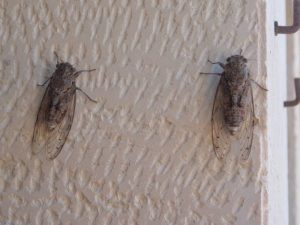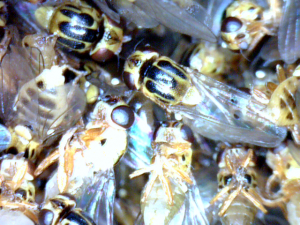Cluster Flies and Ladybird Treatments
In Cluster Flies, Pests
 The Cluster Fly season this year has been later than previous years due to the warm October. Harlequin Ladybirds are another addition to pest control in recent years. These type of Ladybirds seem to be replacing the British Ladybird and although bad news for the British Ladybird it’s good news for pest control companies as this type of ladybird hibernates in mass in buildings as opposed to under back and holes in the ground away from buildings as the British Ladybird does.
The Cluster Fly season this year has been later than previous years due to the warm October. Harlequin Ladybirds are another addition to pest control in recent years. These type of Ladybirds seem to be replacing the British Ladybird and although bad news for the British Ladybird it’s good news for pest control companies as this type of ladybird hibernates in mass in buildings as opposed to under back and holes in the ground away from buildings as the British Ladybird does.

One of the problems with treating these pests at this time of year is that if the weather is too cold then they take longer to absorb the insecticide and so longer to die. The insecticides although residual for up to 3 months inside areas are still degrading and may fully degrade before the majority of the problem is dealt with.
 At PEST UK we may use one or several methods to deal with Cluster Fly and Ladybird problems. It may be a residual insecticide spray to surfaces such as walls, ceilings, window frames, brickwork and roof felt (this is the most effective and long lasting type of treatment but not suitable for all types of surfaces especially dusty or dirty surfaces). A large void such as a loft can be fogged with a fogging machine that gives out the insecticide into the air in fine particles which settle and penetrate voids and kill any airborne insects within the fog which may hang for several hours or days in a space that is not ventilated. This treatment is not residual as the surface spray is but gives a quick ‘knock down’ effect. Applying dust into voids or even onto surfaces offers excellent long term control, it has the advantage of a surface spray in that it will work on dirty surfaces and is highly residual (up to 6 months). The drawback of this type of insecticide application is that it is messy and can easily be disturbed and so the risk of contamination is greater.
At PEST UK we may use one or several methods to deal with Cluster Fly and Ladybird problems. It may be a residual insecticide spray to surfaces such as walls, ceilings, window frames, brickwork and roof felt (this is the most effective and long lasting type of treatment but not suitable for all types of surfaces especially dusty or dirty surfaces). A large void such as a loft can be fogged with a fogging machine that gives out the insecticide into the air in fine particles which settle and penetrate voids and kill any airborne insects within the fog which may hang for several hours or days in a space that is not ventilated. This treatment is not residual as the surface spray is but gives a quick ‘knock down’ effect. Applying dust into voids or even onto surfaces offers excellent long term control, it has the advantage of a surface spray in that it will work on dirty surfaces and is highly residual (up to 6 months). The drawback of this type of insecticide application is that it is messy and can easily be disturbed and so the risk of contamination is greater.

